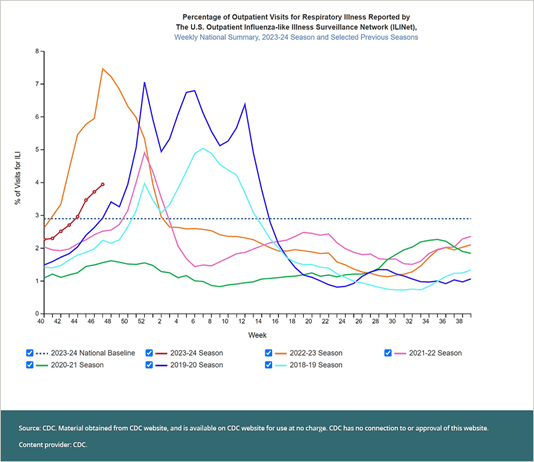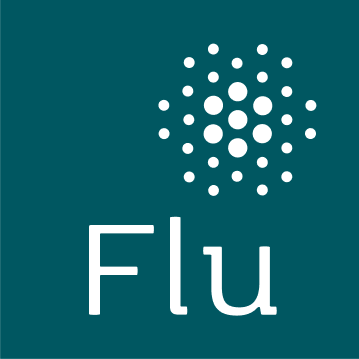Flu shots during National Influenza Vaccination Week can help protect against flu during winter gatherings and beyond
Since 2005, the first week of December has marked the beginning of National Influenza Vaccination Week. This event was created by the Centers for Disease Control and Prevention (CDC) to increase awareness of the importance of flu vaccination. In 2023, National Influenza Vaccination Week runs from December 4 through December 8.
This week may be a great time to get your flu shot for the 2023–2024 flu season, if you haven’t had one yet. Talk to your doctor or pharmacist about what will work best for you.
It takes about two weeks after a flu shot for your body to develop enough antibodies to provide protection against the flu. Although some people may still catch the flu, vaccination has been shown to reduce the severity of illness as well as serious complications from the flu, such as hospitalization, ICU admissions, and death.
Getting a flu shot during National Influenza Vaccination Week can help give the flu vaccine enough time to boost your immunity to the flu before winter gatherings with family and friends at the end of the year. The flu is highly contagious and can spread easily through coughing, sneezing, or even touching contaminated surfaces.
While a recent survey of adults showed that many people aren’t concerned about themselves or their family members getting infected with the flu, influenza can be a serious illness, even in otherwise healthy individuals. Certain people are at higher risk of serious illness that can result in hospitalizations and even death. These include people aged 65 and older, children and pregnant people, as well as people who have weakened immune systems (such as due to chemotherapy).
By taking a few minutes out of your day to get vaccinated now, you can significantly reduce your chances of falling ill with influenza and avoid passing on flu to family and friends as flu begins to spread in the community.
Current status of flu cases in the 2023–2024 flu season
In mid-November, the CDC reported that influenza activity started to increase across the country. More people across the United States are having respiratory illness with fever and a cough or sore throat, which is also called influenza-like illness (ILI). The first report of a child dying of the flu this season has been reported to the CDC; last year, the CDC received reports of 182 children who died from flu-related illness.
On November 13, the Centers for Disease Control and Prevention (CDC) reported that the percentage of people who made outpatient visits due to ILI had increased to 2.9%.

This number is important because 2.9% marks the national baseline for flu levels in the 2023–2024 flu season. The CDC calculates the baseline level each season; percentages at or above this baseline are considered higher than normal.
As of November 27, the percentage of people who made outpatient visits due to ILI had risen to 3.7% (see chart), so flu cases are now considered to be above normal levels.
The number of recorded flu cases usually peaks sometime between December and February. Flu activity can stretch the flu season out to April or even May. This year, flu cases are rising earlier than usual, though not quite as early as they did during the 2022–2023 season. By the end of last year’s season, it is estimated that the flu caused 360,000 hospitalizations and 21,000 deaths. During a September 2023 news conference, CDC Director Mandy K. Cohen, MD, MPH, noted that flu vaccination prevented more than 66,000 hospitalizations due to the flu during the 2022–2023 flu season.
Getting a flu vaccine now can help protect you from the flu as the flu season continues. As in past flu seasons, vaccines for the 2023–2024 flu season have been updated to protect against the most common strains of the flu virus in circulation.
As we all prepare for the holidays, it may seem difficult to find time for a flu shot. But getting a flu vaccine can be quick and convenient. If you can’t schedule one with your doctor, there are many other places you can go to get one, such as pharmacies or community health clinics. Speak with your healthcare provider to learn more. Take action to protect yourself from the flu during your winter get-togethers and the rest of the 2023–2024 flu season.

